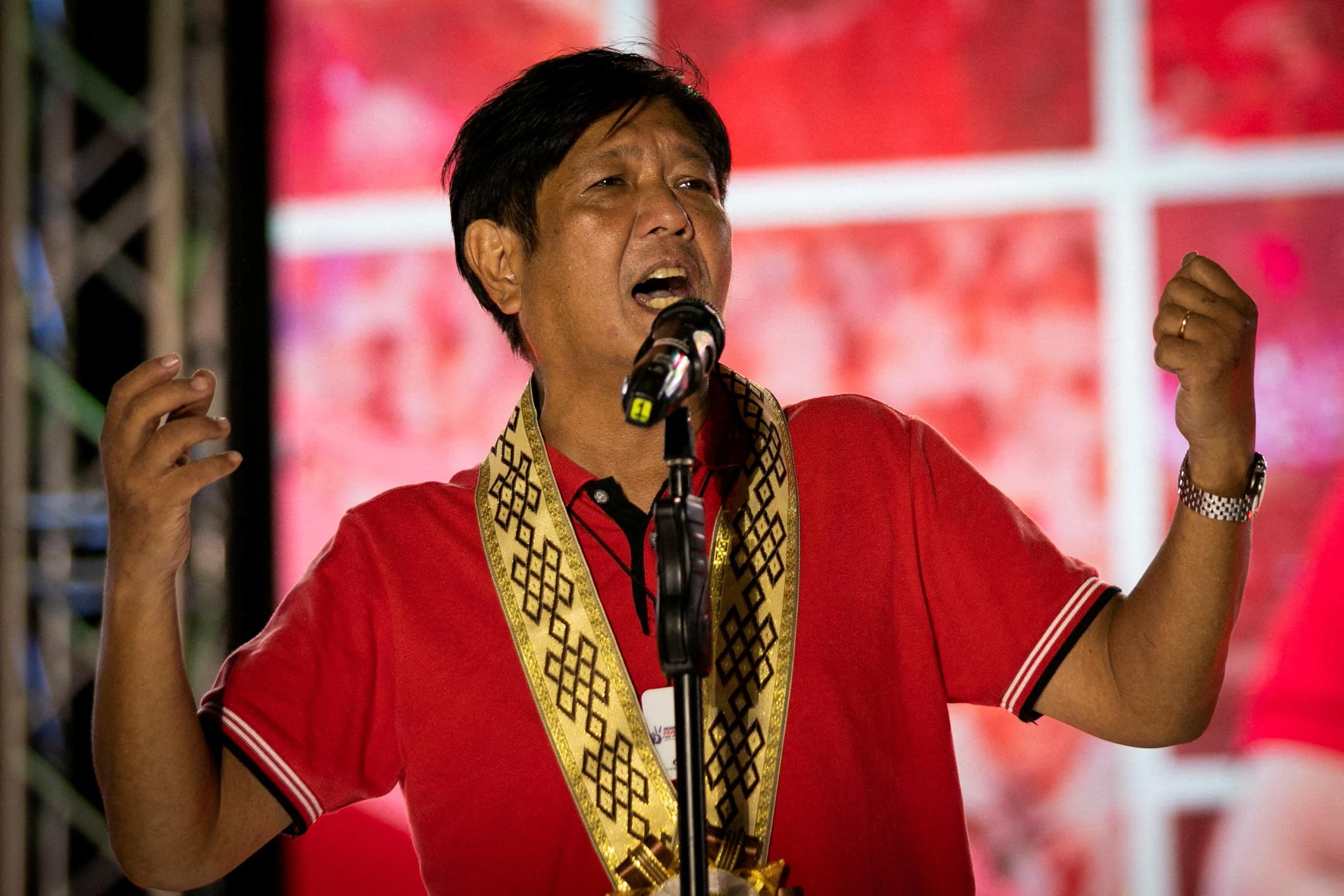The Marcoses are back in power in the Philippines.
What seemed unthinkable just months ago became reality on Monday. Ferdinand Marcos Jr., the son of the late dictator, is on the cusp of winning the presidential election by a landslide. What's more, he's the first candidate to get more than 50% of the vote in the single-round race since his family was chased out of power in 1986.
This decisive triumph is the culmination of a decades-long quest by the most famous and polarizing dynasty in modern Philippine politics to restore its legacy and return to Malacañang Palace. But will Marcos govern like his autocrat dad or deliver on his vague promise of "unity" to appease Filipinos with bitter memories of his father’s iron-fisted rule and kleptocracy?
A second Marcos presidency will put the country’s democracy on life support, argues Aries Arugay, professor of political science at the University of the Philippines Diliman.
"Philippine democracy has been rapidly eroding under [current President Rodrigo] Duterte by all metrics," says Arugay. He doesn’t believe the democratic system will collapse under Marcos but rather move toward "the most minimal procedural definition of democracy” — elections that can easily be manipulated by the state.
In any case, Arugay expects the broader illiberal trend to continue. It’s only a matter of time, he fears, before Marcos resorts to populist-authoritarian strategies to consolidate power — such as removing presidential term limits — because winning an absolute majority gives him a blank check.
But maybe Marcos will be the unifier he claims to be, says Antonio Contreras, professor of political science at De La Salle University and a Marcos supporter. Marcos, he argues, will show Filipinos he can succeed where previous presidents failed by charming his critics.
"He's not going to be confrontational," explains Contreras. "He's going to try to do a lot of diplomacy by talking to people who are against him” — including those who remain suspicious of his motives because “they cannot separate the son from the father."
Still, Marcos’ wide margin of victory suggests that many Filipinos are nostalgic about the strongman rule of his dad, which may have prompted them to vote for Duterte six years ago.
"There is still that memory, that longing, that nostalgia," says Contreras. Post-1986 democracy, he points out, has failed to deliver in the eyes of many Filipinos because it neither transformed society nor proved to be any better than the “old regime.”
Indeed, the Marcos campaign has successfully pushed the "golden era" narrative on social media. His army of bots targeted Gen-Z'ers with viral disinformation videos on TikTok, and the strategy worked: the 64-year-old's "base" is Filipinos under 40, which account for more than half the electorate.
Once he takes over, Arugay expects Marcos to follow in Duterte's footsteps by weaponizing social media to keep cultivating his image and protect his regime against critics.
"Given the pernicious polarization the country is in right now, this disinformation network is needed to rally the troops, target enemies, and hide the possible incompetence and mismanagement of his government," he says. "It’ll be a lean and mean propaganda-spewing machine."
One area where Marcos would be wise to follow his dad's playbook is foreign policy. The elder Marcos was a master at leveraging the Philippines' strategic value for the US war in Vietnam to get things from Washington, which supported him almost until the end and granted his family exile in Hawaii.
Now, his son faces a similar challenge with his country caught in the crossfire of the US-China rivalry.
"It's going to be a balancing act," says Contreras. While the Philippines has a longstanding relationship with the US, Duterte moved the country closer to China, and Beijing is eager to retain influence over Manila due to its interest in the disputed South China Sea. It would thus be "suicidal" for Marcos to “put all his eggs in one basket” like Duterte did with China.
Arugay agrees. If he's well-advised, Marcos will hedge on US-China like (most of) his predecessors did. But if the Americans push him too hard, he might double down on Duterte's approach and embrace China more — which a majority of Filipinos will surely resent.More For You
In this episode of GZERO Europe, Carl Bildt examines how an eventful week in Davos further strained transatlantic relations and reignited tensions over Greenland.
Most Popular
In this Quick Take, Ian Bremmer addresses the killing of Alex Pretti at a protest in Minneapolis, calling it “a tipping point” in America’s increasingly volatile politics.
30,000: The estimated death toll in Iran during the protests at the start of the year, per local health officials, underscoring the scale of the Islamic Republic’s crackdown on its own citizens.
